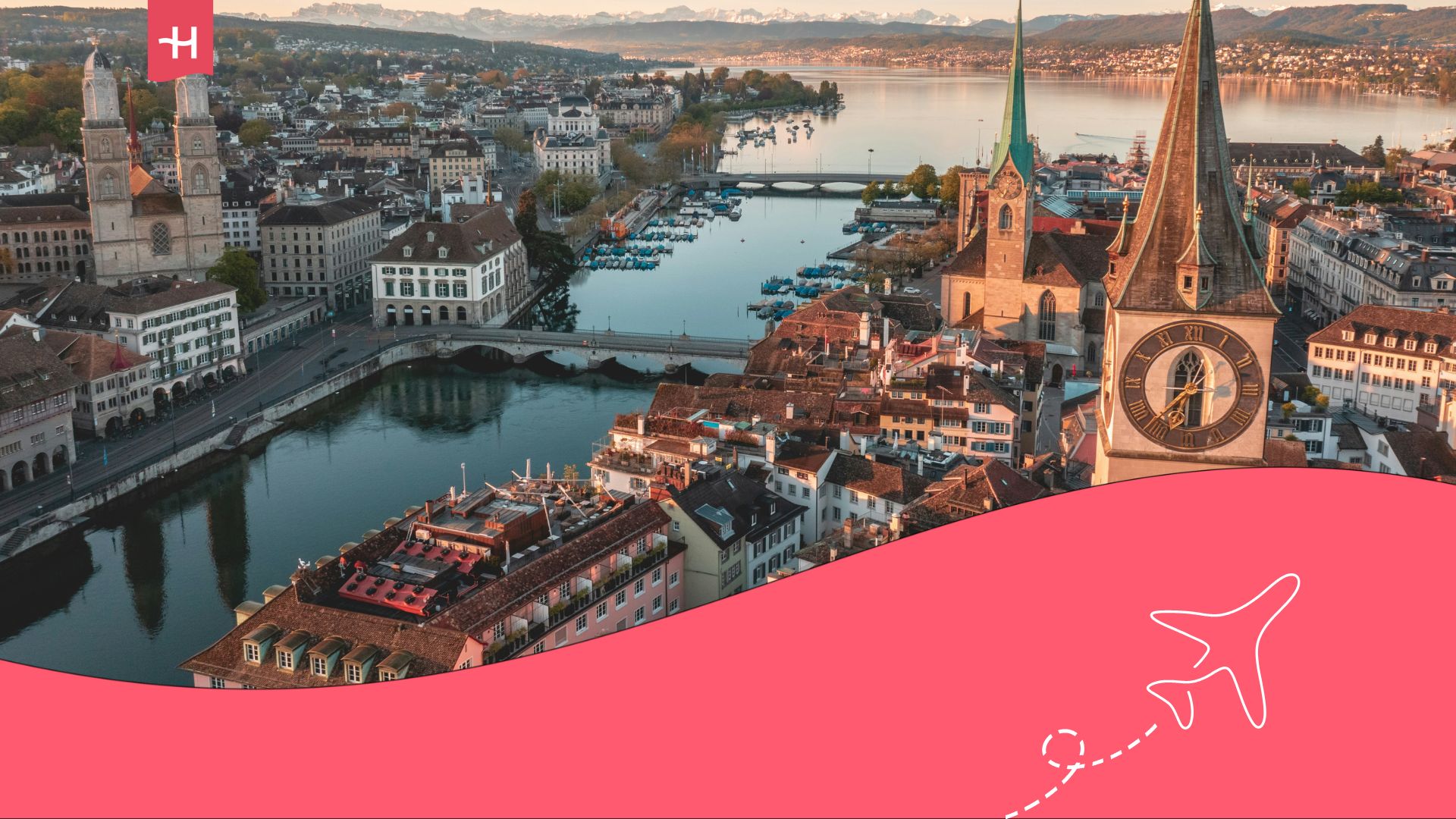Work in Italy: Requirements and opportunities
Work in Italy: Find out about job opportunities, advantages, the areas with the highest demand, and practical tips for finding a job.
In 2025, work in Italy offers the chance to grow professionally while experiencing a country with a rich cultural heritage, a diverse economy and a Mediterranean lifestyle. From the vibrant streets of Milan and the timeless history of Rome to the relaxed pace of coastal towns, choosing to work in Italy brings both career opportunities and an enviable quality of life for skilled professionals as well as those seeking seasonal jobs.
This guide will walk you through the advantages of working in Italy, the legal requirements you’ll need to meet, and the sectors where international talent is most in demand. You’ll also find practical tips for settling in, along with insights on salaries, cost of living, and the main resources for finding a job. With this information, you can plan your work experience with confidence and make the most of everything the country has to offer.
Advantages of working in Italy
Working in Italy offers benefits that go beyond salary. Among the most notable advantages are:
- Quality of life: Italy offers a healthy balance between work and personal life, with schedules that often leave plenty of time to enjoy its food, art, and leisure activities.
- Cultural heritage and geographic diversity: Living and working in cities like Rome, Milan, Florence, or Naples means being surrounded by history, stunning architecture, and landscapes found nowhere else.
- Healthcare system: The country has a public healthcare system known for providing broad and affordable coverage to both residents and workers.
- Opportunities in key sectors: Industries such as fashion, design, food, tourism, engineering, and technology offer a wide range of job opportunities for qualified professionals.
- International environment: Cities like Milan and Rome attract professionals from around the world, fostering diverse communities and multicultural environments.
- Transportation network and strategic location: Its location in southern Europe makes it easy to travel to other countries in the region, perfect for those looking to explore and broaden their international experience.
Requirements for working in Italy
The requirements for working in Italy depend on your nationality and the type of job you are looking for, but in general they include:
- Work visa or permit: For non-EU citizens, a work visa is required, such as one for employed or self-employed work. Citizens of the EU, EEA, and Switzerland can work without a visa, but they must register with the local municipality.
- Employment contract or proof of professional activity: To apply for a permit, you typically need a job offer or proof that you will be working as a self-employed professional.
- Local registration and permits: Upon arriving in Italy, it is common to register as a resident and obtain a codice fiscale, which is the equivalent of a tax identification number.
- Language proficiency: Knowing Italian isn’t always required, but it greatly increases your chances of success and helps you settle into the workplace. In certain fields, like tech or research, working in English is often enough.
- Qualifications and professional experience: Some sectors require recognized degrees or proven experience, and in certain cases, foreign qualifications need to be officially validated.
- Health insurance: Health coverage, either through the public or private system, is a requirement for legal employment.

Tips for starting work in Italy
To make your professional and personal adjustment to life in Italy easier, we recommend taking a few practical steps before you arrive:
- Research the job market: Check Italian job boards and professional networks like LinkedIn to find openings that best match your profile.
- Prepare your CV in European format: In Italy, it is common to use the Europass format, which makes it easier to present your experience and education in a standardized way.
- Learn or improve your Italian: Even if your job mainly requires English, knowing the local language will open more doors and make everyday life easier.
- Organize your documentation: Bring both physical and digital copies of your passport, academic certificates, work references, and any documents needed for credential recognition.
- Ensure you have internet access from day one: Having internet as soon as you arrive is essential for finding accommodation, navigating the city, and scheduling interviews. Monthly plans from Holafly let you stay connected easily and reliably from day one.
- Open a bank account in Italy: Many companies require payments to be made to a local bank account, so setting one up early will help ensure your payments are processed smoothly.
- Learn about labor regulations: Get to know your rights, maximum working hours, vacation entitlements, and tax responsibilities to avoid any issues.
Types of jobs in Italy for foreigners
There are many areas where foreigners can work in Italy, depending on their education, experience, and language skills:
- Tourism and hospitality: Hotels, restaurants, and travel agencies often hire staff for customer service, kitchen, and administrative roles, especially in tourist cities and coastal areas.
- Language teaching: English is in high demand, along with other languages like German, French, and Spanish, creating opportunities in schools, language academies, and private tutoring.
- Fashion and design: Milan and Florence have a high demand for professionals in the fashion industry, interior design, and textile production.
- Agriculture and seasonal work: Seasonal workers are often hired during grape, olive, or fruit harvests, particularly in the central and southern regions of the country.
- Technology and innovation: Developers, engineers, and digital marketing specialists can find opportunities in both startups and established companies.
- Health and personal care: Hospitals, clinics, and eldercare centers often need qualified staff, especially in regions with an aging population.
- Construction and technical trades: Carpentry, plumbing, electrical work, and other manual trades are always in constant demand.

The jobs most in demand in Italy for foreigners
Currently, the sectors with the most vacancies for foreigners in Italy include:
- Software developers and IT specialists: Companies are looking for talent with experience in programming, cybersecurity, and data analysis.
- Healthcare professionals: Doctors, nurses, and caregivers, especially in regions with a high elderly population.
- Language teachers: Mainly English, but also German, French, and Spanish.
- Cooks and hospitality staff: Especially in tourist areas and during peak season.
- Specialized engineers and technicians: Renewable energy, mechanical, and civil engineering.
- Seasonal agricultural work: Highly sought after in wine-growing and agricultural regions.
Salaries and cost of living in Italy
Salaries in Italy vary depending on the sector, region, and level of experience. On average, net monthly pay ranges from around $1,320 to $1,980, though in specialized fields like technology, engineering, or medicine, it can exceed $2,750.
The cost of living also depends on the city. In Milan and Rome, rent and utility prices are higher than in smaller cities like Bologna or Bari. For a foreigner, average monthly expenses including rent, food, transport and basic necessities can range from around $990 to $1,650.
For those arriving in Italy, having a reliable internet connection is essential for job searching, staying in touch, and managing daily life. Holafly’s monthly plans provide unlimited internet without the hassle of contracts or installations, making it easier to settle in during your first months in the country.
Holafly – Monthly plans for Italy
Stay connected from the moment you arrive in Italy with Holafly’s monthly plans. Enjoy unlimited data, easy setup, and support in your language. Perfect for job hunting, handling paperwork, and keeping in touch with family and friends.
Important: If you are a frequent traveler and want to stay connected without worrying about expensive roaming or looking for a new SIM at every destination, Holafly’s subscription plans are for you. With a single eSIM, enjoy internet in more than 170 countries for a fixed price and no surprises on your bill. Travel without limits and connect easily and securely! 🚀🌍

Where can you find job opportunities in Italy?
Italy has multiple channels for finding work, both in person and online:
- Online job platforms: Sites like Indeed Italy, InfoJobs, Monster, and LinkedIn list job openings across the country and in a variety of sectors.
- Employment agencies: Companies such as Adecco, Randstad, and Manpower offer job placement, recruitment, and selection services.
- Offers on specialized websites: For industries like fashion, design, or hospitality, there are specialized job portals that make the search easier.
- Professional networking sites: Joining job fairs, networking events, and expat communities is a great way to discover new career opportunities.
- Local employment centers (Centri per l’Impiego): Government offices that provide job search assistance and career guidance.
- Government job postings: In sectors like agriculture and hospitality, the government runs programs that hire temporary foreign workers.
Frequently asked questions about working in Italy
It depends on your nationality. Citizens of the EU, EEA, and Switzerland do not need a visa, while those from other countries require a work permit or specific visa.
On average, between $1,400-2,100 net per month, although in skilled professions it can exceed $3,000.
The most notable are technology, healthcare, language teaching, hospitality, seasonal agriculture, and fashion/design.
It is not always mandatory, but it is definitely a good idea. In customer service or administrative roles, it is usually required, whereas in tech or research positions, English is often sufficient.
Look for jobs on online portals, get in touch with recruitment agencies, and network on platforms like LinkedIn. Joining expat communities can also give you a valuable edge.
Between $1,050-1,750 per month, depending on the city and lifestyle.





 Language
Language 


















 No results found
No results found








